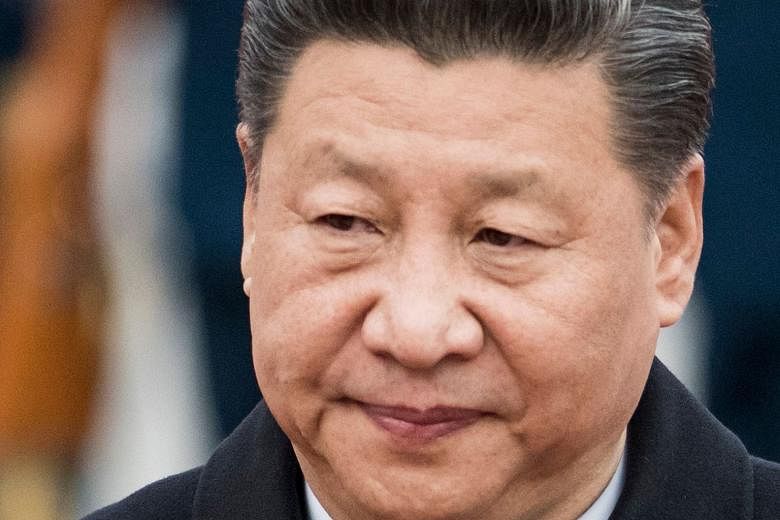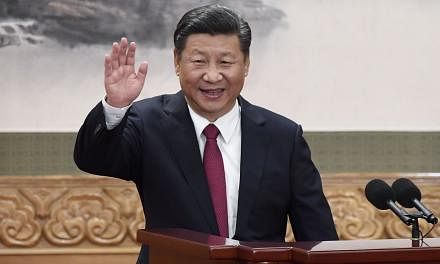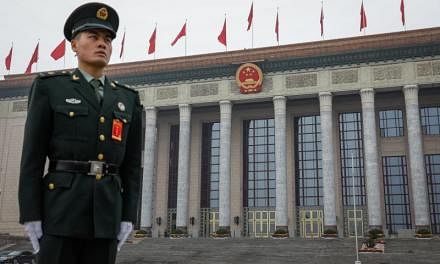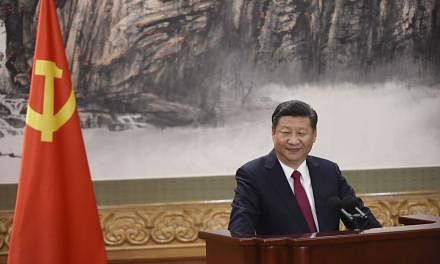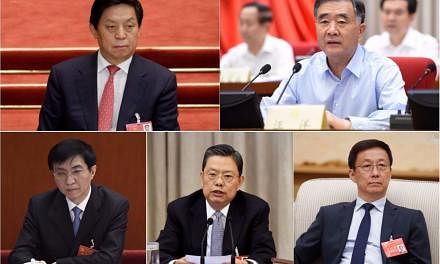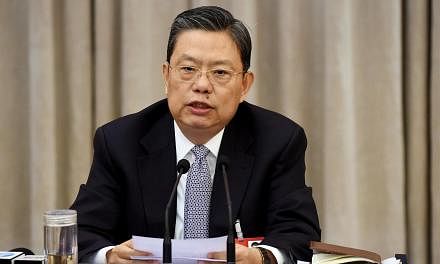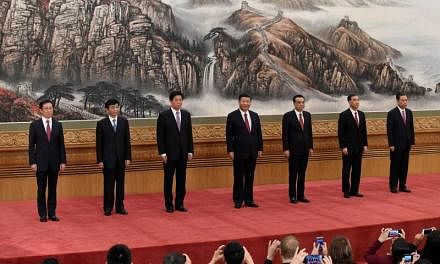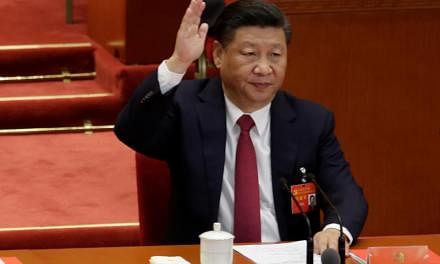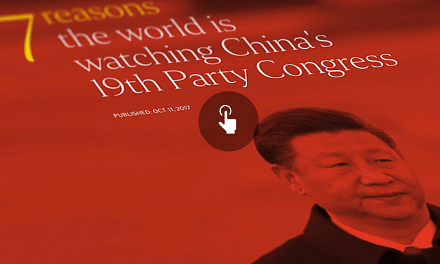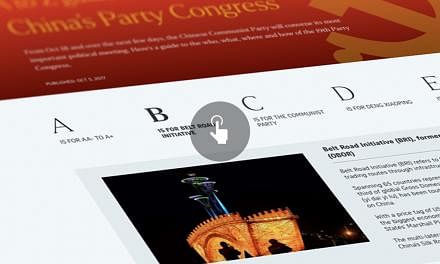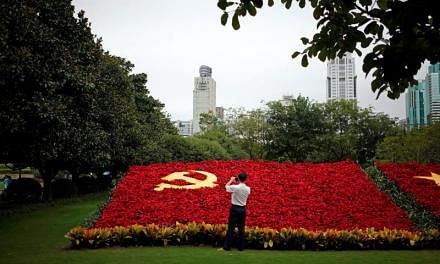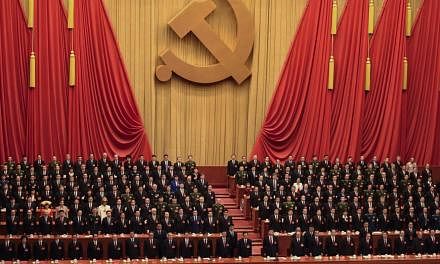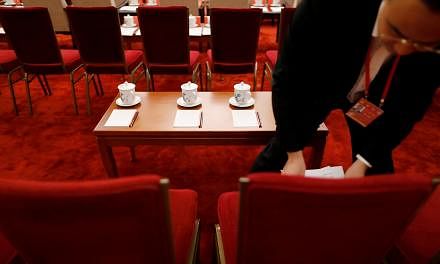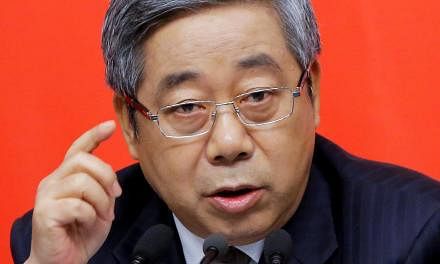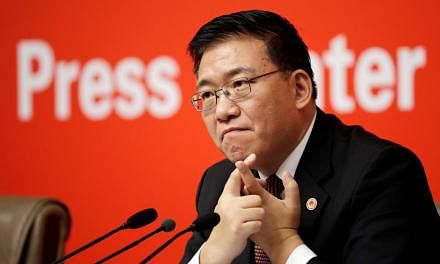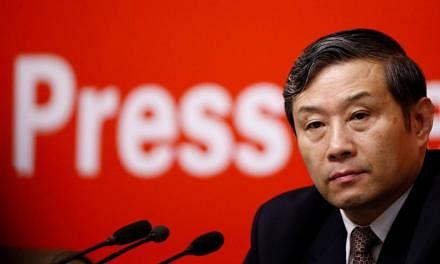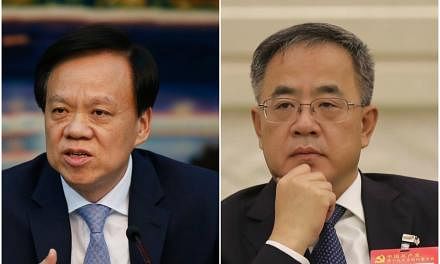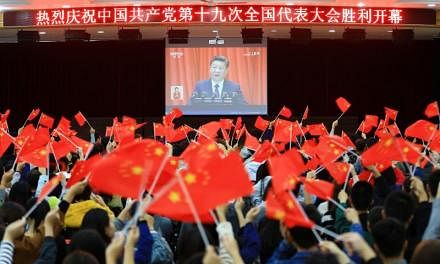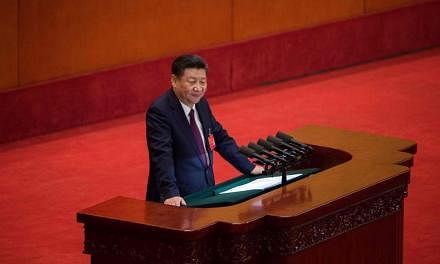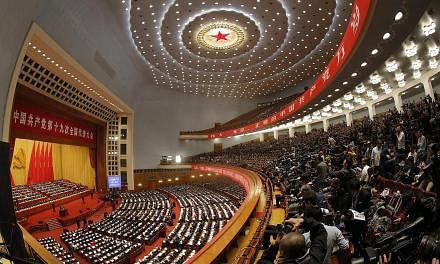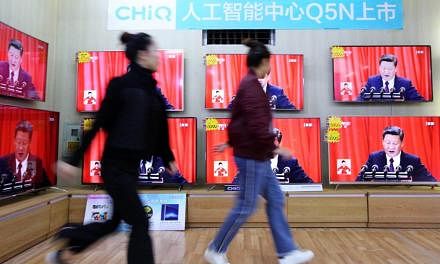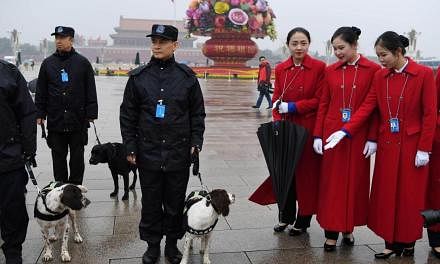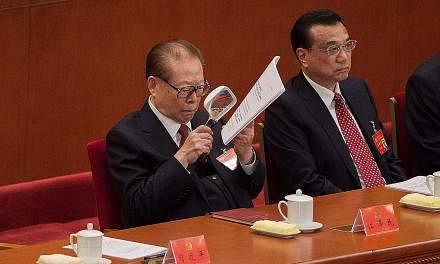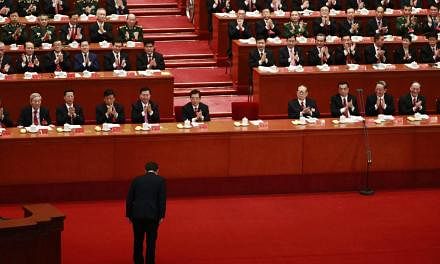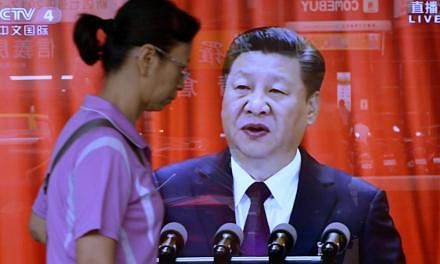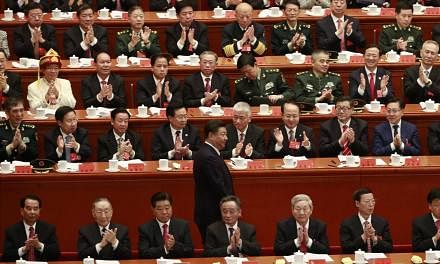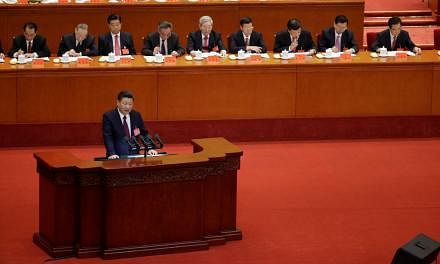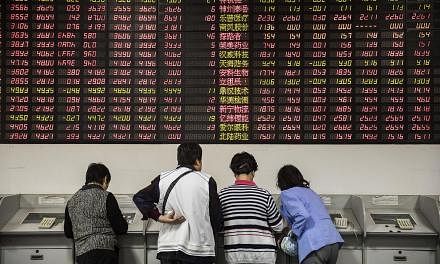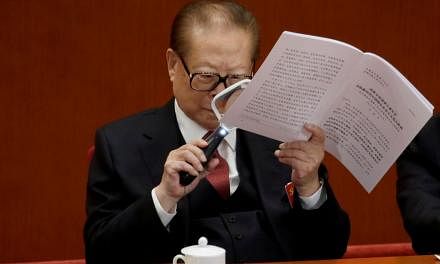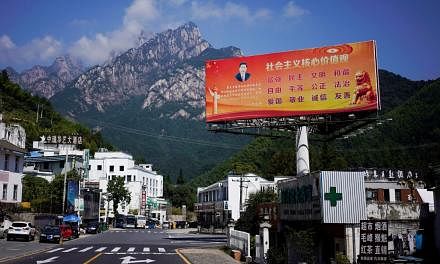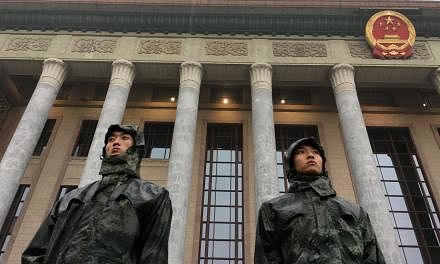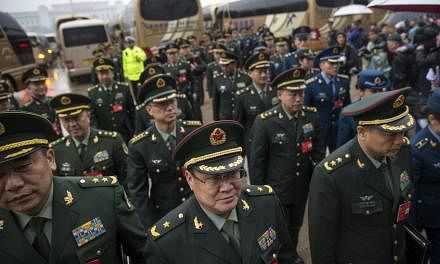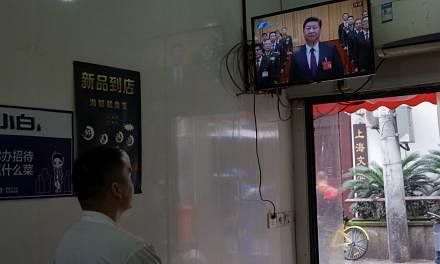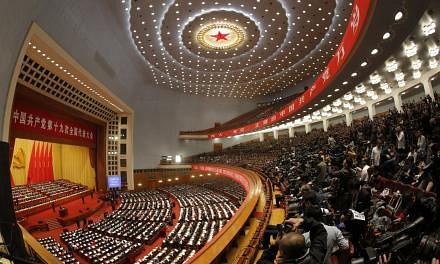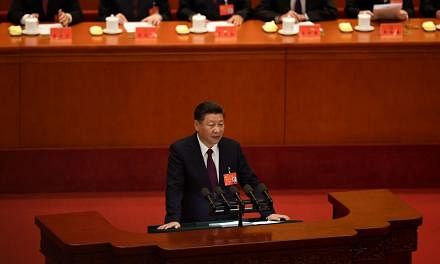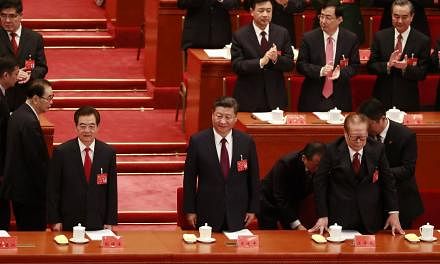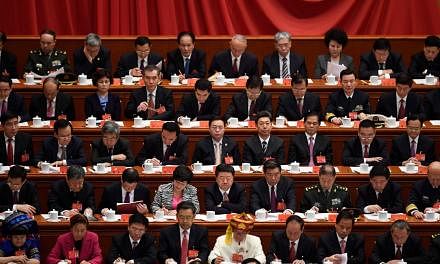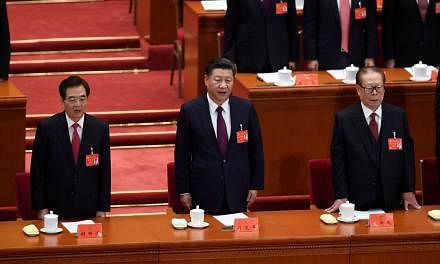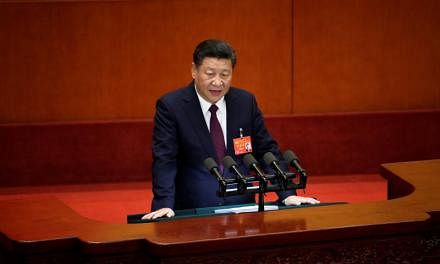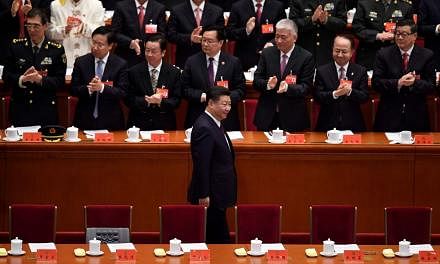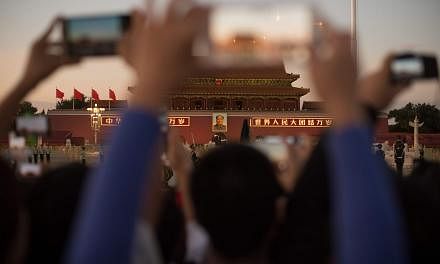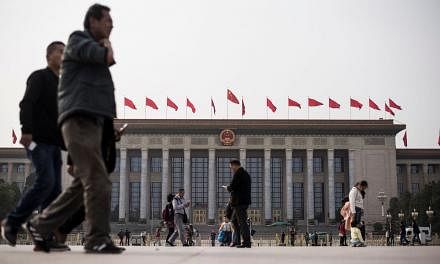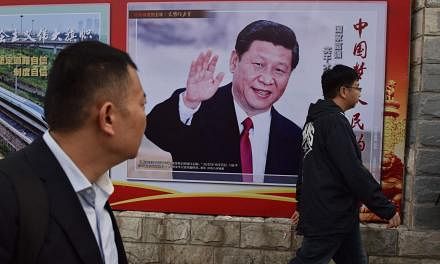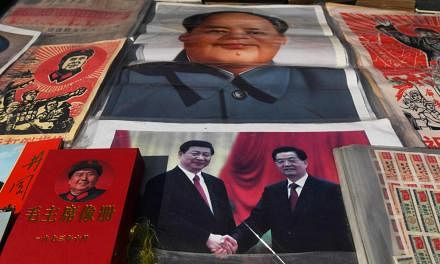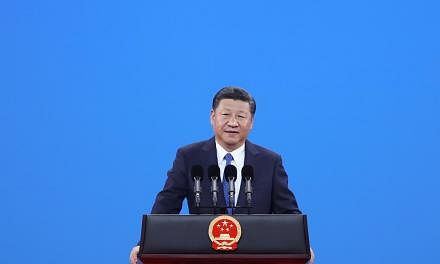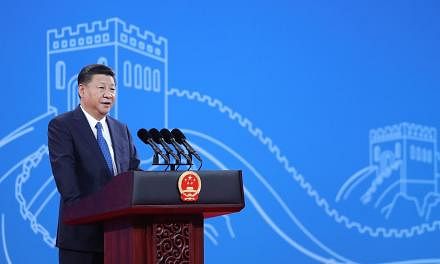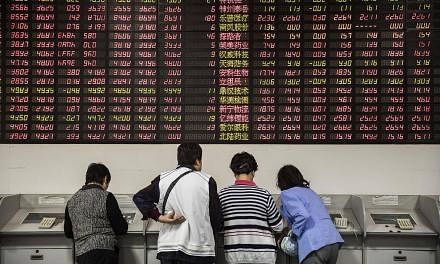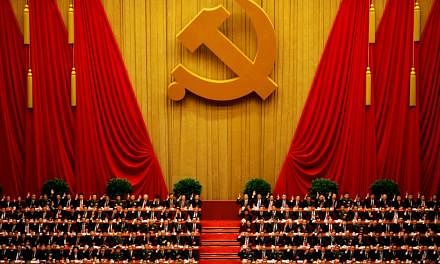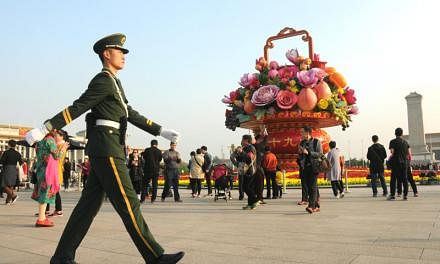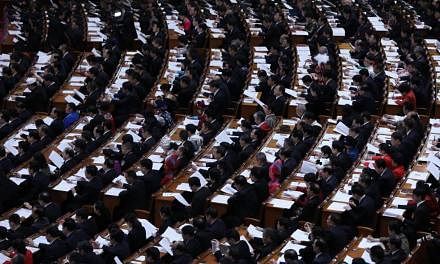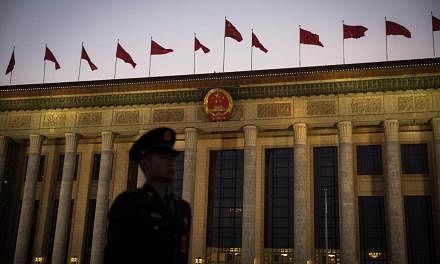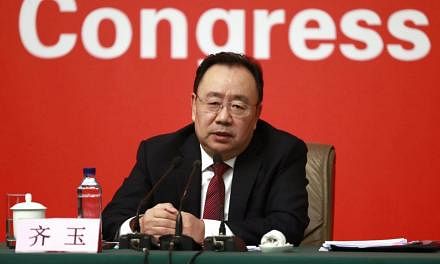President Xi Jinping's political ideas will be written into the party Constitution and will bear his name, unlike those of his two predecessors, a Chinese Communist Party (CCP) statement has signalled.
At the close of the seventh plenum of the 18th Central Committee yesterday, the committee issued a communique stressing the importance of "implementing general secretary Xi's series of important speeches, and new ideas and new strategies for governance" at the upcoming 19th Party Congress on Wednesday.
An amendment to the party Constitution was passed by the committee, the communique said, indicating that Mr Xi's political ideas will be added to the party's guiding ideology.
The congress, a five-yearly meeting of party cadres that selects China's top leadership, will formally approve the charter amendment, confirming Mr Xi as China's strongest leader since Deng Xiaoping.
China's two presidents before Mr Xi - Mr Jiang Zemin and Mr Hu Jintao - had their contributions added to the CCP Constitution only after they stepped down from office.
The rendering of their political ideas also did not carry their names.
"For Xi Jinping's name to be included in the Constitution will have huge symbolism," said analyst Hoo Tiang Boon of the S. Rajaratnam School of International Studies.
"At the very least, it will represent that he has a higher stature than Jiang Zemin and Hu Jintao, and symbols matter a lot in a society like China."
He added: "It would represent a further consolidation of his power."
But the communique's wording appears to signal that Mr Xi's ideas will not enter the party charter as "Xi Jinping Thought", which would have put it on the same footing as Mao Zedong Thought.
This represents a minor setback for Mr Xi, who appeared to have wanted his political thinking to be ranked with Mao, said Chinese University of Hong Kong analyst Willy Lam.
However, the setback is not very important because "after all, his ideas will still be the guiding spirit for the party and the state", he added.
Historian Zhang Lifan noted that the communique had put Mr Xi's ideas after his predecessors' in chronological order.
If what is written in the final charter is "the whole string of words" used to describe Mr Xi's thoughts, it means it would not carry the same weight as the other guiding principles, he added.
Yesterday's communique praised Mr Xi for "extremely extraordinary" and "historic" achievements in areas such as deepening reform and ideological development.
Notably, a significant portion of it was devoted to Mr Xi's extensive anti-corruption drive. This was likely because the sweeping campaign was "the bright spot" in Mr Xi's first term, said Mr Zhang.
The communique also formalised the expulsion of 12 party members, including former Chongqing party boss Sun Zhengcai, once seen as a possible successor to Mr Xi.
Whether top graft-buster Wang Qishan will retire at the coming congress remains in the air, as is whether Mr Xi will name potential successors to the apex Politburo Standing Committee.
